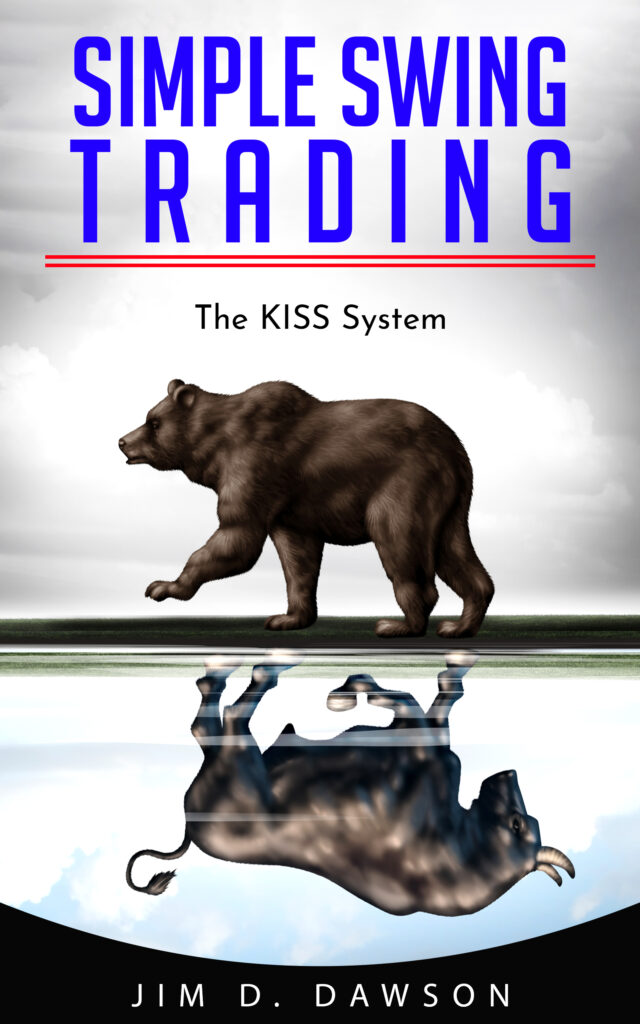Oil futures trading is one of the most dynamic and exciting marketplaces out there. It allows speculators and hedgers to trade oil, and make gains or cut losses based on their analysis of oil prices. But if you’re new to futures trading, it might seem like a daunting task to get into oil futures. Don’t worry, we’ve got you covered. In this blog, we discuss how oil futures contracts work, and the fundamentals of crude oil that may move prices in the market. We also touch upon tips for trading oil futures and understanding what moves oil prices in the market.
How Do Oil Futures Contracts Work?
Oil futures trading is one of the most popular and lucrative financial market. It involves trading crude oil futures contracts on commodity exchanges, such as the Chicago Mercantile Exchange (CME). The market is highly volatile and prices change day by day. Due to this, oil futures trading has gained a lot of popularity among traders and investors.
(CME). The market is highly volatile and prices change day by day. Due to this, oil futures trading has gained a lot of popularity among traders and investors.
However, it is not a walk in the park and requires careful analysis of price trends and market conditions.
Oil futures contracts are of three types – physical, cash, and synthetic oil futures. Understanding them can help you get a grip of futures trading easily.
The basic of oil futures trading is buying oil futures contract at a specified price and selling it at a higher price. Thus, buying oil futures contract means buying crude oil from the market and selling it at an agreed price in the future. On the other hand, selling oil futures contract means selling crude oil on the market and buying it at an agreed price in the future.
Familiarize yourself with various types of oil futures contracts available in the market. Some of them are front month, back month, and Future1-5 contracts. Understand their pricing structures and order types to become a proficient trader of oil futures easily.Also, familiarize yourself with risks involved with trading oil futures and how to manage them properly.
Crude oil futures contract specifications
Trading oil futures contracts is a lucrative and popular venture but with ample of risks involved. Oil futures market is a platform for buying and selling crude oil and it offers different types of futures contract specifications. There are 4 main oil futures contract specifications – futures contract delivery, futures contract delivery month, futures contract maturity, and futures contract price.
The delivery – the physical delivery of oil at the specified time and price, no matter whether it is during the period of trading or any other day.
The contract delivery month – This represents the lactation period of oil market. It refers to the number of months oil market stays open for trading.
Maturation – After delivery month, maturity specifies the number of months that oil price stays in the market till maturity date. The value of crude oil contract may go up or down after maturity date.
Price – In terms of price specification, oil prices are divided into 3 categories depending on their volatility- High, medium and low volatility crude oil prices.
Different types of futures contracts are additional features which provide traders scope to customize their trading strategies as per their convenience and risk appetite.
How much is an oil futures contract?
Oil futures trading is a popular financial market where traders buy and sell oil contracts at a price agreed in advance. The price of oil futures contract varies depending on the current market price of crude oil. A crude oil futures contract is a standardized financial instrument that allows traders to purchase or sell oil at a specified price, and settle the contract at expiration. As with any market, there are different types of oil futures trading orders available, such as limit and stop-loss orders. You can use this knowledge to successfully trade oil futures.
It is important to understand the difference between long and short futures contracts before investing in oil futures trading. A long futures contract is an agreement to buy oil at a specified price and a specified date, while a short futures contract is an agreement to sell oil at a specified price and date. As with any market, margin accounts are vital for managing risk when trading oil futures. This allows you to leverage your investment by borrowing part of your initial investment from your broker or market platform in exchange for greater leverage and potential profits.
In short, oil futures trading offers great opportunities for traders who are willing to take risks and put in the effort needed to succeed in the market
Why trade crude oil futures?
Trading oil futures is a highly liquid and volatile market, offering traders the chance to capitalize on short-term price movements.
Oil futures contracts are accessible to individual traders via online brokers or futures exchanges. This provides traders with access to leverage and margin trading within the futures market, which can help them maximize profits and minimize losses. Additionally, oil futures contracts are convenient and easy to trade, making them ideal for any trader with experience and interest in the oil market.
Another advantage of trading oil futures is that the price of crude oil is typically fairly stable over time. This makes oil futures an attractive way to hedge against price fluctuations in oil. Indeed, trading crude oil futures can provide a good way for traders to start their journey into futures markets and gain valuable experience and expertise.
Crude Oil Fundamentals
The crude oil futures market is a global market for trading oil futures and oil futures contracts of various physical crude oil benchmarks. The market is regulated and operated by the commodity futures exchange, and new contract prices are determined based on futures prices of the underlying crude oil.
The physical crude oil is stored and transported by oil majors, and the price of oil futures depends upon supply and demand dynamics in the global crude oil markets. An overview of crude oil futures market and its components will help you understand the basics of buying and selling crude oil futures.
Understanding the key drivers of oil prices in the markets will help you analyze economic indicators that influence oil prices. It will also help you analyze supply and demand dynamics of major crude oil markets, like OPEC and Russia.
Analyzing the market fundamentals will help you understand how to analyze various futures trading instruments and market trends.
There are various factors that influence oil prices in the market, like global economic conditions, geopolitical developments, supply shocks, demand shocks, and others. These factors play an important role in determining future price movements of crude oil.
Tips on Trading Crude Oil Futures
– Research the oil futures market and its fundamentals.
– Set realistic trading goals.
– Develop a trading plan.
– Monitor oil futures prices and events.
– Use risk management tools such as stop-loss orders to limit losses on your trades.
– Consider using automated trading systems or expert advisors to help with trading decisions.
Price Movements for Crude Oil
The price of crude oil is influenced by various factors, such as geopolitical and economic factors. Oil prices are affected by oil demand and supply. If demand increases, oil prices go up, and vice-versa. When supply increases, oil prices fall. Apart from that, oil futures market is also dependent on crude oil price movements of the petroleum product which is traded on exchange.
In futures market, traders buy and sell oil futures contracts to speculate on oil prices. They use technical indicators, such as moving averages, to predict oil prices and make their trading decisions. They can use order options to reduce their risk and increase profits. However, there are risks involved in trading oil futures and a risk management plan should be developed.
A trader must analyze the factors affecting crude oil prices before trading oil futures and develop a risk management plan accordingly.
Learn what moves the price of oil
Oil futures trading is a popular and profitable market. In oil futures trading, traders buy and sell oil futures contracts at prices of future oil prices, which are set by market factors such as supply and demand. Oil futures trading is similar to buying and selling oil spot market, but the price of oil futures contract is fixed and known in advance.
The basics of oil futures trading explained
Oil futures trading involves buying oil futures contract and selling the contract at a pre-determined price on an exchange. The price of oil in physical market is based on crude oil price, which is set by supply and demand for crude oil. The price of crude oil moves up and down due to factors such as geopolitical events, weather, and supply and demand. Oil futures prices are set in anticipation of crude oil prices during expiration date of contract. To understand the different types of contracts available in oil market, let’s explore them below.
Types of Oil Futures Contracts Available
– Purchasing option contract: A buying option contract gives the trader the right to purchase crude oil at a pre-determined price on or before a specified date. It provides leverage to the trader because if crude oil prices go high, he can purchase more crude oil with one contract. However, it also carries risk if crude oil prices go low before maturity date of contract. Also known as call options, purchasing options contracts provide leverage to traders as they can purchase more crude oil with one contract than their investment amount. But they have to pay higher price if price goes high before maturity date of contract – POC
– Selling option contract: A selling option contract gives the trader the right to sell crude oil at a pre-determined price on or before a specific date.
Frequently Asked Questions
Can anyone trade oil futures?
Yes, trading oil futures is accessible to anyone who is interested and has some understanding of the markets. However, there are a few things to keep in mind before trading oil futures. First, you will need a margin account and enough money to cover the cost of the contract. You should also have knowledge of the market and technical analysis skills which help you make wise decisions when trading oil futures. Lastly, it is recommended that you consult with a financial advisor or broker before attempting to trade oil futures to ensure that your investments and decisions are sound and profitable.
How can I trade oil futures?
If you want to trade oil futures, then here are some of the steps and considerations you should take:
1. Open a Brokerage Account and Deposit Funds: Before trading futures, you’ll need to open a brokerage account and deposit the funds required for trading. Some exchanges may require a minimum margin deposit, so make sure to check with your broker and understand the leverage available.
2. Research and Understand Different Types of Contracts: Oil futures can be traded in different contract types, such as Brent crude oil future contract, West Texas intermediate (WTI) crude oil future contract, and others. Check out trading tutorials and resources online or through your broker to gain a better understanding of each contract type.
3. Choose a Futures Commodity Merchant: To have access to an exchange, you’ll need the help of a futures commodity merchant, who can provide you with market prices and trading advice.
4. Monitor Your Position: To minimize risk, monitor your oil futures position regularly and close it before expiration date.
5. Use Risk Management Tools: Lastly, consider using risk management tools such as stops and limits to protect yourself from losses if there is a sudden market volatility or price movements beyond your expectations.
Is there a commission fee when you buy or sell oil futures?
Yes, buying and selling oil futures comes with commission fees. Depending on the broker, these fees can range from a few dollars to several hundred dollars, depending on the contract size and type of contract you are trading. Aside from the commission fee, you may be charged a transaction fee for each trade you make.
It is important to research different brokers and review their terms and conditions before trading oil futures so that you can understand the exact fees and commissions associated with making trades. Make sure to compare brokers and take into account factors like price, customer service, trading tools, and reliability. Doing your due diligence will help ensure that you get the best deal possible when trading oil futures.
How do you make money on oil futures?
Making money on oil futures is a great way to leverage the volatile market of crude oil prices for your own gains. If you are interested, the first step is to buy a contract and then predict that the price of oil will go up. By doing this, you are essentially buying the rights to purchase crude oil at a later date and at a pre-specified price.
However, if you think that the price of oil will go down, you can also sell a contract in anticipation of making profits. Regardless of which type of trade you choose, it is important to be aware of the risks associated with trading oil futures and utilize strategies such as stop-loss orders and risk management techniques in order to protect your investments. Before trading, make sure to conduct thorough research and explore different strategies to maximize your profits and minimize losses in the futures market.
Conclusion
The oil futures market has proved to be an efficient and secure mechanism for oil price discovery, and it continues to thrive as a global benchmark for crude oil prices. As oil prices fluctuate, traders can use futures contracts to hedge their risk and ensure a stable price for future delivery of crude oil. The futures contract is standardized and allows for the buying and selling of crude oil with a predetermined price and delivery date. Crude oil futures contract specifications, such as size, tick value, and expiration dates, are established by the exchanges and vary among contracts. To trade crude oil futures, it is essential to understand crude oil fundamentals, trading tips, and price movements of crude oil. This way, you will be able to make smart decisions while trading in this volatile market.


